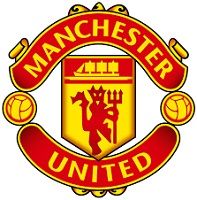On 28th April 1894 at Ewood Park, Blackburn a team took the field that had not lost a game all season. At the end of the game that would not change. The opposition was the then Lancashire and Yorkshire railway-team, Newton Heath, by then in its fifth season. It was based on the Newton Heath railway depot that had opened in 1876 with its origins in the Carriage and Wagon Dept.. Its first ground was next to the yard itself, not, as today, in Salford but a couple of miles north-east of the city. And the team in question, Liverpool, was in just its second.
But the age of the teams is not the matter of interest here, it is their make-ups. Newton Heath took the field with seven Scots in its eleven, Andy Mitchell, Fred Erentz, Jimmy McNaught, Willy Davidson, John Clarkin, Bobby Donaldson, Billy Hood and John Peden. It was a trend that seems to have begun in 1886 with the first payment of players by the club, amongst them from Third Lanark the Glaswegian forward, Billy Tait, followed in 1889 by Coupar Angus's Willy Stewart and in 1890 by Bob Milarvie from Pollockshields. But the import really took off in 1891 with the arrival of nine new Scots, the departure of just three, the retention of several others with more to come, albeit perhaps not all of the highest quality. It meant that by the time of the game in question perhaps a score of Scots were on the Manchester club's books. It had led in the meantime to the team stepping straight into the Football League's First Division in 1892 and retaining its place, if only just having finished in last place in 1893, but winning a "Test Match", a play-off, precisely what they now again faced a year later.
But Liverpool in terms of the Scottish-ness went further even than Newton Heath. Its team, one that had gone through the whole season without a single defeat, fifty points of fifty-six, was that day Matt McQueen, Andrew Hannah, Duncan McLean, John McCartney, Joe McQue, Jim McBride, Patrick Gordon, Malcolm McVean, Harry Bradshaw, David Henderson and Hugh McQueen. It wasn't quite the eleven of eleven team of the Macs of the previous season. Bradshaw was a local boy, who would become an England international. Nevertheless it meant that seventeen of the twenty-two players on the pitch that day were Scots and of them, all Liverpool, five were from the pioneering Leven Vale, four from "World Champion" Renton, and two were Scottish internationals. It meant that the Merseyside team was, even in Scots terms, superior and it would show, in what was effectively a "Test" of the Scot on Scot, the Scottish game on the Scottish game. The result was a
victory for the Second Division team, it scoring twice to no reply. Newton Heath was relegated. Liverpool was promoted but there were limitations, indeed a repetition. The bad news would be that at the end of the season to come the Anfield club even with eighteen Scots on its books would itself finish at the foot First Division and lose the resulting "Test Match" to just seven-Scot Bury. However the good news would be bounce back. At the end of the 1895-6 season the single Test Match became a four-team play-off that Liverpool would top as Newton Heath first stagnated, then declined and eventually folded with a certain Manchester United rising from its remnants.



